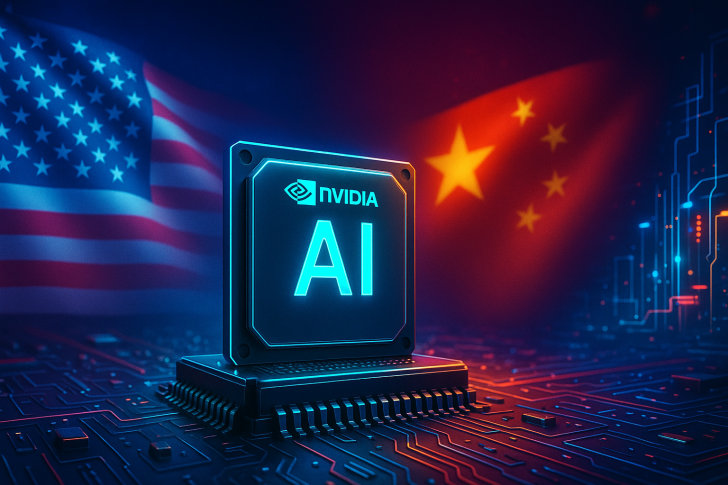The tech cold war between the United States and China just escalated. Washington is reportedly preparing to ban Nvidia's AI chip sales to China — even the scaled-down versions designed to comply with existing rules. This could reshape global AI development, especially given Nvidia CEO's recent warning about China winning the AI race.
The Tweet That Sparked the Discussion
Financial analyst from The Kobeissi Letter recently revealed that the U.S. is moving to ban Nvidia's scaled-down AI chips from reaching Chinese customers.
The timing is notable — it came right when Nvidia CEO Jensen Huang warned that "China is going to win the AI race."
Why a U.S. Ban on Nvidia's China Chips Is So Significant
The ban reportedly targets Nvidia's reduced-performance AI accelerators like the A800 and H800, chips that were specially designed to meet previous export restrictions. These were Nvidia's last legal pathway to serve Chinese AI developers after Washington blocked high-end GPUs like the A100 and H100. China accounts for roughly 20 to 25 percent of Nvidia's data center revenue, and these chips were the company's workaround to stay compliant while keeping a market presence. The move shows Washington is closing every technical loophole that might help China build better AI systems, marking one of the most aggressive expansions of AI export controls yet.
Jensen Huang's Remark Gains New Weight
Earlier this week, Jensen Huang turned heads when he said China is going to win the AI race. At the time, it sounded bold. Now it reads more like a warning. Huang has consistently argued that China is central to the global AI ecosystem, that real progress depends on international cooperation, and that trying to isolate Beijing could backfire on U.S. competitiveness. Given the reported ban, his comments highlight the risks of aggressive export policies that might weaken Nvidia's long-term market position.
What This Means for Nvidia and the AI Industry
If the ban goes through, Nvidia will need to rethink its global strategy. That likely means shifting more supply toward U.S. and European cloud providers, ramping up expansion in India, Southeast Asia, and the Middle East, and bracing for more geopolitical turbulence. While Nvidia still faces overwhelming global demand, losing access to part of the Chinese market will reshape the company's outlook.
On the other side, a full ban would accelerate China's drive for self-sufficiency in AI hardware. Beijing has already invested heavily in homegrown accelerators from companies like Huawei and Biren. A total cutoff from Nvidia would speed up indigenous GPU development, specialized AI chip production, and the creation of fully localized AI compute ecosystems. China's goal of building a sovereign semiconductor pipeline just became more urgent.
The Broader Impact on the Global AI Race
The geopolitical fight over AI isn't about research papers anymore — it's about who has access to computing power. Restricting Nvidia's chips doesn't just hurt one company, it reshapes how entire countries approach AI strategy. Will the U.S. extend restrictions to cloud-based AI access? Can China scale domestic GPU production fast enough? Will Europe, India, or the Middle East become Nvidia's next major markets? Could alternative chip architectures move mainstream faster? The answers will determine how the global AI race unfolds.
 Saad Ullah
Saad Ullah

 Saad Ullah
Saad Ullah


